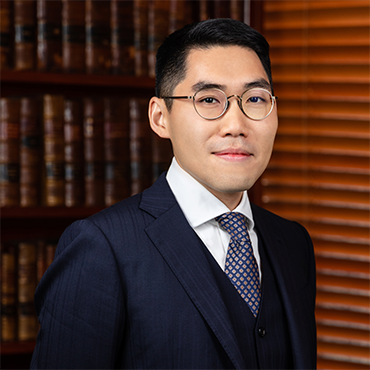Acropolis Ltd v W&Q Investment Ltd & Ors [2024] 3 HKC 249, [2024] HKCFI 482 (Jeff Yau)
Jeff Yau represented the petitioner and the 14th respondent in Acropolis Ltd v W&Q Investment Ltd & Ors [2024] 3 HKC 249, [2024] HKCFI 482.
The petitioner petitioned for the winding up of the Company on unfair prejudice and just and equitable grounds. Provisional liquidators were appointed by the Court. The petition was dismissed by consent and the provisional liquidators were released from their duties and their remuneration was to be charged to the Company on a time-cost basis, to be taxed and be paid out of the Company’s assets. The Company applied for a review of the taxation by the Master of the High Court and submitted a list of objections. There was a dispute between the petitioner and the Company on one part and the provisional liquidators on the other as to whether the provisional liquidators agreed with the petitioner that their remuneration would be capped prior to their appointment. The Company applied to (i) amend the list of objections, (ii) join the petitioner as a party to the taxation review. The petitioner and the Company applied (iii) for preliminary issues to be determined in conjunction with the taxation review. By consent of the parties, a Master of the High Court adjourned the amendment and joinder applications for directions. The provisional liquidators opposed all three applications, contending that only the Master had jurisdiction to determine the applications; that, even if the judge had jurisdiction, the alleged fee cap agreement had not been raised in the review proceedings so there could be no preliminary issue, and, anyway, it was premature to order a trial of the preliminary issues.
Held, granting leave to amend the list of objections, dismissing the joinder application and giving further directions for the determination of the preliminary issues:
- (1) It was not suggested that the judge of the Court of First Instance would carry out a taxation review in lieu of the Master of the High Court. The petitioner and the Company were proposing directions as to how the Master should conduct the forthcoming review. In fact the Master adjourned the first and second of the applications to a judge for directions, and the third application built on the first application. By determining whether the list of objections should be amended, the judge would be giving the directions that the Master had requested (paras 16-18).
- (2) The existence of a fee cap arrangement or understanding could be a factor for the Master to take into account in the taxation review. The provisional liquidators were discharging their duties as officers of the court. It would be strange if the court could not consider the fee cap arrangement in the taxation review. The Maxwell principles or s 28(3) of the Companies (Winding-Up) Rules (Cap 32H) did not preclude the Master from taking such fee cap arrangement into account on whether a provisional liquidator was properly claiming more than the cap. Whether there was a fee cap agreement or an understanding that the provisional liquidators’ duties would only be light was not a matter that could be determined summarily and this question could only be determined at a trial, at which witness evidence from both factions was tested by cross-examination. It would be appropriate to order a trial of preliminary issues since the fee cap agreement or understanding may have a bearing on the taxation review. If there had been some sort of agreement or understanding, it was better to know that at the earliest opportunity. Mirror Group Newspapers Plc v Maxwell & Ors (No 2) [1998] 1 BCLC 638 considered (paras 19, 21, 23-26).
[The above is excerpted from the headnote to the report in HKC.]


